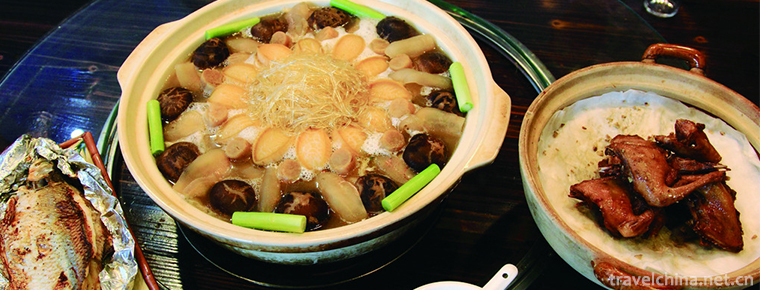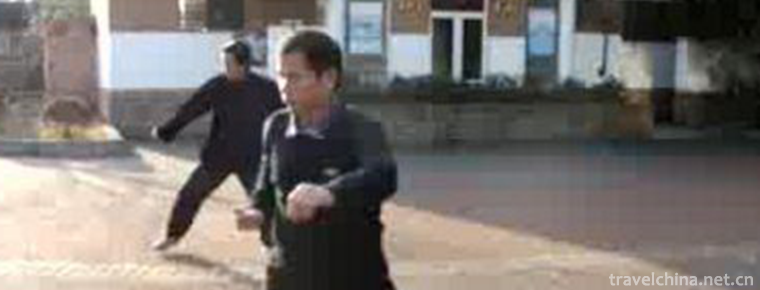2018-11-02

- By ChinaWiki.net
- Chinese Edition
- 2020-12-16
Neijiang folk culture
Yuexi niudeng dance
Bull lantern dance is popular in Yuexi. One dressed as a shepherd boy and two dressed as cattle with cow shaped props. In the sound of gongs and drums, the shepherd boy first said doggerel to the audience to express the festival's congratulations, and then led the cattle to dance. It mainly imitates the daily dance of feeding, using and playing with cattle. The most popular is that "cattle" roar, do not listen to the command, run and jump, so anxious that the shepherd boy scratched his head and scratched his cheek. It made the audience laugh. As cattle can be farmed and carried, and closely related to the production and life of the people, this dance makes people feel friendly and lovely.
The martial arts of breaking the door
In the Qianlong period of Qing Dynasty, Liu Gan, a native of LUOQUAN, was a man of strong temperament. He began to practice martial arts as a child and became obsessed with martial arts. When he was young, he visited many famous teachers in Bashu all the year round. He used martial arts to make friends and learn from the strengths of other families. He was intelligent and practiced hard. He integrated the local martial arts with the Emei martial arts originated in Emei Mountain and spread in Bashu He created the "Qibu yunjiao high pile plate breaking" method, and became the founder of Emei plate breaking.
Eight trigrams mandarin duck wine
Bagua Yuanyang wine is a "living cultural relic" of Taoist health culture. It started in the Sui and Tang Dynasties, flourished in the Song Dynasty, and was transferred to the folk after the Qianlong reign of the Qing Dynasty. It was handed down in Weiyuan. The secret of wine making was handed down by the leader of Pingzhen sect. The wine brewing techniques mainly include: five elements formula (according to the relationship between the five elements of Taoism, sixteen kinds of traditional Chinese medicine are made into pills), Diyuan alchemy (using Daoist Diyuan alchemy, the pills are removed from the furnace, the effective ingredients are activated, and the "eight trigrams Yin and Yang pill" is refined), and the wine alcoholization technique (the "eight trigrams Yin and Yang Dan" is replaced by the "eight trigrams Yin and Yang pill") Put into the wine and soak it in a constant temperature.
Ask a Question
Your email address will not be published.



0 Questions